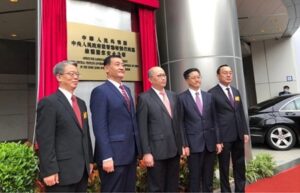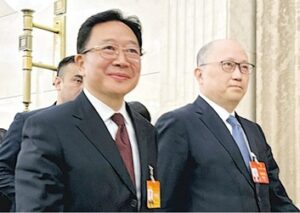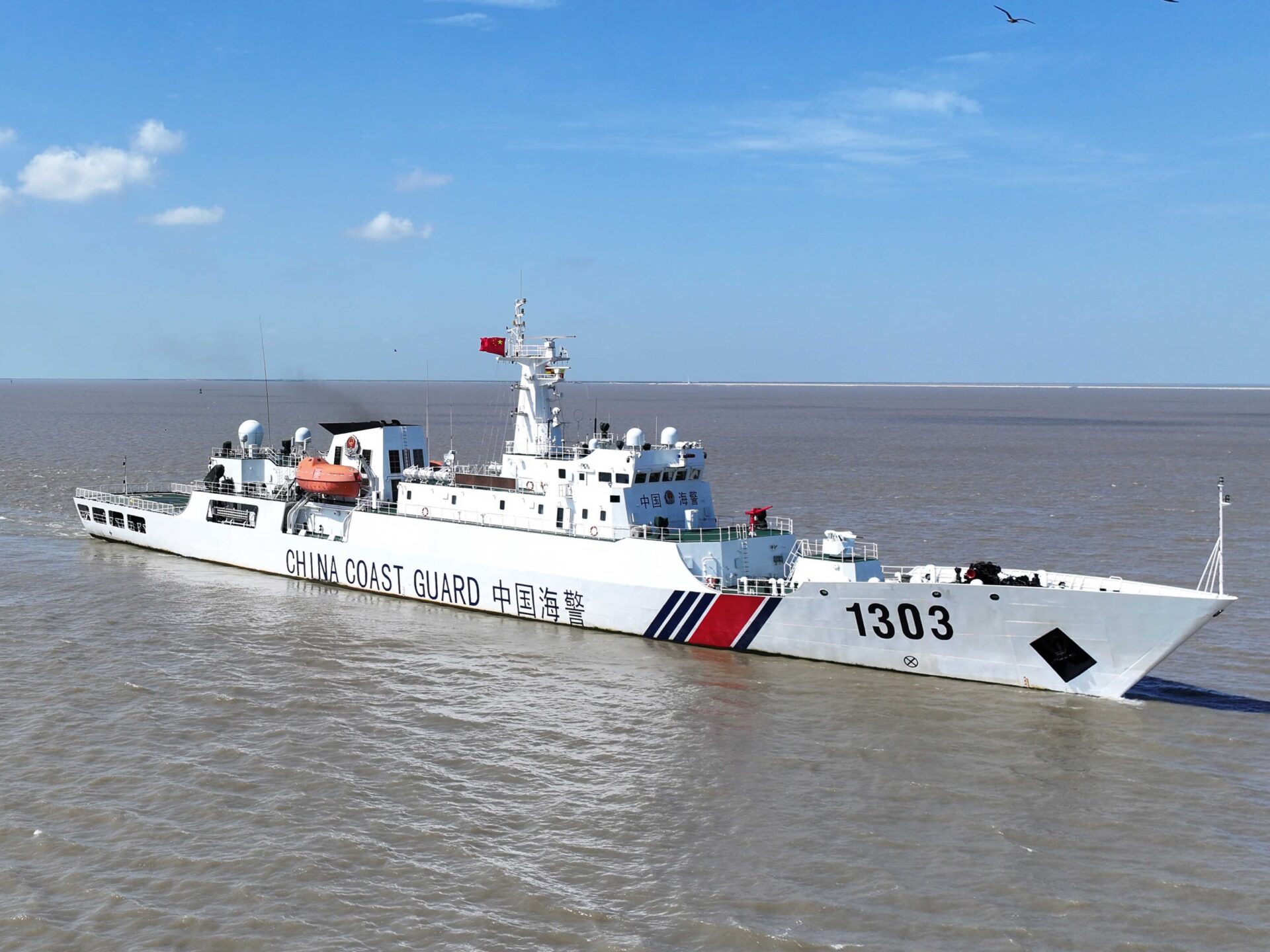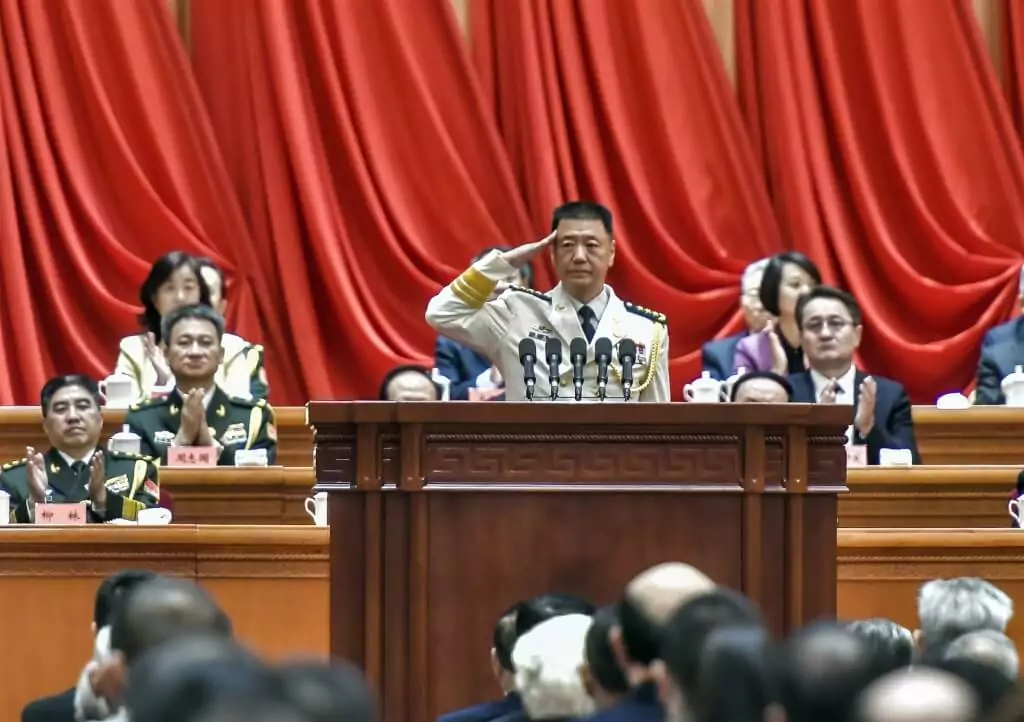
New Legislation Could Increase Security Presence in Hong Kong
New Legislation Could Increase Security Presence in Hong Kong
Executive Summary:
- Two new pieces of national security legislation in Hong Kong introduce six offenses and six “prohibited places,” signaling closer alignment with the laws of the People’s Republic of China (PRC) mainland and raising concerns about the safety and freedom of foreigners and locals.
- The Office for Safeguarding National Security (OSNS), Beijing’s counter-subversion arm, is central to these efforts. Established in 2020, its leadership is selected from the Ministry of Public Security, the Ministry of State Security, the Central Commission for Discipline Inspection, and the Hong Kong and Macau Affairs Office in Beijing.
- The apparent requisition of around 1,700 rooms across four hotels suggest that Beijing’s security presence on the ground in Hong Kong is set to ramp up and could lead to increased efforts to build cases against targets abroad and their relatives at home.
The Hong Kong government rushed two pieces of security-related legislation through the Legislative Council in a single day on 13 May. Six new national security offenses and six “prohibited places” (禁地) were unveiled, enacted under the National Security Law. The government claimed that the urgency was due to an “increasingly turbulent global geopolitical landscape” (全球地緣政治局勢震盪升溫) (China Brief, March 1, 2024; Hong Kong E-legislation, May 13; (Hong Kong Government Information Office, May 13). Officials have also stated that the legislation will support the work of the Office for Safeguarding National Security (OSNS; 特别行政区维护国家安全公署), the central government’s powerful counter-subversion arm in Hong Kong. This suggests that Beijing may deploy additional security personnel to the city in the near future.
Sharp Penalties for New Offenses
Violation of any of the new offenses carries prison terms of three to seven years and stiff fines of up to 500,000 Hong Kong Dollars ($63,700). People in Hong Kong are also required to keep confidential anything they learn about the work of the OSNS—a stipulation that echoes the mainland’s intelligence and counterintelligence laws (Ming Pao, May 12). Chen Hongyi (陳弘毅), a former member of the Basic Law Committee and professor at the Faculty of Law of the University of Hong Kong, said that if the National Security Office exercises jurisdiction over a case, the mainland’s “Criminal Procedure Law” (刑事诉讼法) applies in prosecuting the defendant (Ming Pao, May 13). This is another sign that Hong Kong laws are being brought closer to PRC statutes.
Table 1: The Six New Offenses
| Offence | Maximum penalty |
| Failing to comply with the OSNS’s legal instruments. | 7 years in jail and HK$500,000 fine |
| Providing false or misleading information or documents. | 7 years in jail and HK$500,000 fine |
| Disclosing measures being taken or investigations being conducted by the OSNS. | 7 years in jail and HK$500,000 fine |
| Forging OSNS documents, etc. | 7 years in jail and HK$500,00 fine |
| Resisting or obstructing the OSNS or staff members of the OSNS in the performance of duty, etc. | 3 years in jail and HK$200,000 fine |
| Pretending to be or be able to influence OSNS staff members. | 3 years in jail and HK$200,000 fine |
(Source: Hong Kong government gazette notice via Hong Kong Free Press, May 13)
As detailed in Table 2, the “prohibited places” include four hotels with a total of 1,709 rooms. This could signal an increase in the number of mainland security officials being sent to live in Hong Kong. Together, the two measures appear to presage a significant escalation in enforcement activities by OSNS.
Table 2: The Six Prohibited Places
| OSNS Permanent Offices | Location | District |
| OSNS’s future permanent site | The junction of Hoi Fai Road and Sham Mong Road, Kowloon, occupied by the OSNS | Tai Kok Tsui |
| OSNS’s future permanent site | Hoi Fan Road, Kowloon, occupied by the OSNS | Tai Kok Tsui |
| ‘Prohibited’ Hotel | Location | Room Count |
| City Garden Hotel | North Point, Hong Kong Island | 613 [1] |
| Island Pacific Hotel | Sai Wan (Sai Ying Pun), Hong Kong Island | 343 [2] |
| Metropark Hotel Hung Hom | Hung Hom, Kowloon | 487 [3] |
| Metropark Hotel Causeway Bay | Causeway Bay, Hong Kong Island | 266 [4] |
(Source: Hong Kong Free Press, May 13)
Before 1997, the colonial equivalent to the OSNS in Hong Kong was the British Special Branch, called the “political branch” (政治部) in Chinese. It was charged with protecting Hong Kong’s security, in part by preventing the crown colony from being drawn into China’s Nationalist-Communist conflict. Special Branch carried out counter-intelligence work, tasks related to border control, and political surveillance, often with the cooperation of Britain’s security services. [5]
A former Hong Kong Police Special Branch officer told China Brief that, during colonial times, the counterespionage unit had 1,200 officers at its height (Author interview, May 24). That number is significantly lower than the possible total of 1,700 mainland security officials for whom there is room in the prohibited places.
Beijing Intelligence Officers Lead OSNS
OSNS appears to be staffed by personnel from the PRC’s Ministry of Public Security, the Ministry of State Security, and the Central Commission for Discipline Inspection, the party’s anti-corruption arm. When it was first formed on July 8, 2020, its leadership posed for the cameras in front of its newly designated headquarters, the Metropark Hotel. The selection of this location was no coincidence: Metropark looks over Victoria Park, which was previously the site of annual demonstrations commemorating Tiananmen Incident on June Fourth, 1989.
The officials who posed for the photo revealed something about its structure and missions (see Figure 1). The unit’s then-chief was Zheng Yanxiong (郑雁雄), a Cantonese-speaking senior CCP cadre best known for suppressing the 2011 anti-corruption protests in Guangdong Province known as the Wukan Uprising (乌坎事件) (Washington Post, July 3, 2020). He remained chief of OSNS until January 2023, when he was transferred to become the head of the PRC Liaison Office in Hong Kong (Ming Pao, May 31). Zheng was reportedly demoted on June 3, however, and sent back to Beijing to take a post in the National People’s Congress. His successor at OSNS is Zhou Ji (周霁), a man who previously worked at the Hong Kong and Macau Affairs Office in Beijing (China News, June 3).
Also in the 2020 photo were Ministry of Public Security First Bureau Chief Chen Siyuan (陈思源), who is in charge of the PRC’s internal political security and was visiting for the event; and Li Jiangjiu (李江舟), a deputy director (副主任) at OSNS (RTHK, April 15, 2023; MPS, accessed June 11). Li represents the ministry’s first bureau in Hong Kong, charged with hunting down political dissidents, terrorists, and unapproved religious organizations, including the Falun Gong and underground Christian churches. The ministry has taken a greater counterintelligence role since Xi Jinping ascended to become the country’s leader, indicating a broad political security remit for OSNS (China Brief, April 12, 2013).
Sun Qingye (孙青野), OSNS’s other deputy director, is also a senior officer in the Ministry of State Security, which hunts spies at home and seeks foreign intelligence abroad. Sun made his first public appearance in the 2020 inauguration of OSNS (Ministry of Human Resources and Social Security, July 3, 2020). More recently, in an interview with RTHK in early March, Sun said that Hong Kong’s young people had a weak sense of national security before the 2020 National Security Law and that relevant education should be promoted in schools in a way that schoolchildren can understand (Guancha, March 8). He is otherwise a relatively unknown figure, however, with only a few items available about him on the internet. It seems likely that he has the lead on catching foreign spies in Hong Kong and local people who are persuaded to act as their agents. He may also direct an intelligence-gathering effort aimed at foreigners living in and passing through Hong Kong.
Ma Yinming (马寅明), referred to officially as a “group leader” (组长) rather than a deputy director, also posed with the leaders of the OSNS in July 2020. He was assigned there by the Central Commission for Discipline Inspection. Before 2022, he was occasionally mentioned in the Hong Kong and Chinese press, but not since then (news.gov.hk, July 8, 2021).
Figure 1: Beijing Opens National Security Office in Hong Kong, July 2020

From left to right: Sun Qingye (MSS), Chen Siyuan (MPS), Zheng Yanxiong (then-OSNS director), Li Jiangjiu (MPS), and Ma Yinming (CCDI). (Source: X/Global Times)
Figure 2: Zhou Ji (L) and Zheng Yanxiong (R) in Beijing

(Source: Ming Pao)
Conclusion
These latest developments raise concerns about the safety and freedom of foreigners and locals in Hong Kong as its authorities have vociferously pursued the extraterritorial application of the National Security Law (Ming Pao, July 3, 2023, May 30; Ta Kung Pao, December 15, 2023; China Brief, May 10, 2024). Travel to Hong Kong and Macau may become even more hazardous for foreigners who have inadvertently or intentionally violated the National Security Law.
Within Hong Kong, an increase in the number of OSNS personnel could lead to increased efforts to build cases against targets abroad and their relatives at home, expanding the scope of such enforcement to additional jurisdictions. Attention by analysts is therefore warranted to determine whether the PRC will escalate its efforts to pursue extraterritorial enforcement of a law that affects free speech and free association worldwide.
Notes
[1] “The City Garden Hotel features top quality, contemporary accommodation. Each of the 613 rooms are spacious and comfortable” (City Garden Hotel Hong Kong, accessed June 12).
[2] “Island Pacific is a waterfront hotel situated in the lively Sai Ying Pun area of Hong Kong … All 343 guest rooms are non-smoking and many feature views of the harbour or city skyline” (Trivago, accessed June 12).
[3] “Metropark Kowloon is a 4 star hotel in Hong Kong located in the Kowloon district … There are 487 air conditioned guest rooms and suites with en-suite bathroom, hair dryer, alarm clock …” (Trivago, accessed June 12).
[4] “Overlooking the sea, Metropark Hotel Causeway Bay Hong Kong is a 12-minute walk from Causeway Bay in Hong Kong. This hotel has 266 rooms and features a currency exchange and a lift on-site” (Metropark Causeway Bay, accessed June 12).
[5] “Royal Hong Kong Police Force: the Cell and the Safe House.” The Hong Kong Jockey Club University of Chicago Heritage Courtyard and Interpretation Centre (The University of Chicago, accessed June 12).


